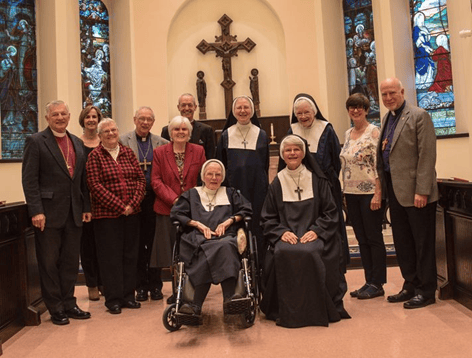ROME – Without even logging in, a physician and human rights activist named Harri Uyghur managed to steal the show during an on-line event Tuesday sponsored by the US Embassy to the Holy See on the plight of Uyghur people in China, offering a powerful reminder of the human impact of repression.
Uyghur, born in the Chinese province of Xinjiang into the ethnic minority whose name he shares, came to prominence in 2017 when his parents were detained in one of China’s notorious internment camps. (Current estimates are that more than a million Uyghurs are languishing in those camps.) He launched a campaign called #FreeMyParents, which led to their liberation a year later.
Now living in Finland, Uyghur went on to found “Uyghur Aid”, an international human rights group devoted to documenting instances of persecution, harassment, torture and imprisonment in Xinjiang.
He was scheduled to participate in Tuesday’s seminar, which was livestreamed in English by the American embassy on its Facebook page and in Italian on Youtube, but he pulled out at the last minute. In a message read aloud at the event, Uyghur explained he did so out of fear of retribution on relatives in China.
“My in-laws are ‘traveling’ in China for a vacation, and I hope they will enjoy their trip and safely return to their home. And I hope my parents will be able to continue their regular life as a regular citizen of PRC,” he wrote.
“What I have been doing is not an insurgence, nor enmity against anyone or any country. I stand up for human rights of people in China, particularly in Xinjiang. I have been contributing for the belief that all humans are created equal, and what the Chinese government is committing in Xinjiang is not something that normal human beings, including Chinese people, can ignore,” Uyghur wrote.
“I want to continue to contribute for the good of the human rights of people in Xinjiang, however, not at the cost of my parents or my family’s life, safety and well-being. I have done as much as I can, and I believe I can do more, but I really need to take a break, at least for now, or until my parents and in-laws’ safety and well-being is guaranteed,” he wrote.
“I and my wife are in so much fear … we have to admit that we are not strong enough to continue our resistance, especially not at the cost of our parents.”
When it comes to the situation facing the roughly 13 million majority Muslim Uyghurs in China, that pretty much says it all.
(In the interests of full disclosure, I was the moderator of Tuesday’s event and it fell to me to read Uyghur’s message.)
Another Uyghur activist who did join Tuesday’s discussion, journalist Gulchehra Hoja of Radio Free Asia, provided another flesh-and-blood lesson in the price of resistance, since she’s got two dozen family members in China missing and presumed to be in the camps as a consequence of her reporting and activism.
Just last week, Hoja said, she learned that a 59-year-old relative had died in a Chinese prison, having been sentenced to 19 years behind bars for the crime of having studied religion with a neighbor some four decades ago. Also recently, Hoja said, she discovered that her own name is on a government “wanted” list in China.
“We are facing a genocide in every aspect of life,” she told the event. “I speak for my mother, my father, my brother, and the millions desperate to be safe.”
Hoja said that China’s “merciless” campaign to subjugate the Uyghurs is especially focused on their practice of Islam, with virtually any expression of piety – such as growing a beard or wearing a veil – now classified as “extremism” by the government and subject to punishment. More than 600 imams are now reported missing, she said, and more than 15,000 places of worship and prayer have been demolished.
“For Uyghurs today, choosing faith is tantamount to choosing death,” she said.
Rachel Harris, an expert on Uyghur culture and music at London’s School of Oriental and African Studies, said that the Sufi current of Islam reached the Uyghurs in the 10th century and became foundational to their identity. A first wave of repression, she said, came during the China’s Cultural Revolution in the 1950s through the 1970s, but as things began to relax in the 1980s many Uyghurs returned to the faith and new forms of piety flourished.
Beginning in the 1990s, however, Beijing began to see this reaffirmation of distinctive Uyghur identity as a threat, classifying religious expression as “anti-social.” After 9/11, she said, authorities shifted their rhetoric and began describing the Uyghur practice of Islam in terms of “religious extremism” and “terrorism.”
Today, Harris described a “systematic campaign” to wipe out the Uyghurs’ religious identity, including the destruction of thousands of mosques, shrines and cemeteries, coupled with a “concerted campaign of secrecy and disinformation.” In response to international criticism, she said, Beijing from time to time will selectively stage official celebrations of Uyghur heritage, but she described them as a “hollow shell to the outside world to mask the ongoing suppression of religious faith.”
Marcela Syzmanski of Aid to the Church in Need, a papal foundation that assists persecuted Christians and promotes religious freedom, provided a global overview, saying that her organization’s most recent report found 67 percent of the world’s population, or 5.2 billion people, live in countries where there are “grave violations” of religious freedom.
China, Syzmanski said, is “at the very top of the list” of offenders. To illustrate how ubiquitous the pressures are in China, she noted that citizens now can have points added to their social credit scores for abandoning religious faith, which often makes it easier to obtain loans and cheaper to purchase goods.
Patrick Connell, the Chargé d’Affaires at the US Embassy to the Holy See, who’s currently in charge pending the nomination of a new Vatican ambassador, told the event that “the international community, across governments and in concert with civil society, needs to come together to condemn the abuses and call for the respect of religious freedom, dignity, and cultural heritage in China.”
“Future generations will rightly ask what we did to hold China accountable in the face of such crimes and the strong body of evidence and witness testimony to the truth,” Connell said.
The decision by the embassy to host the event comes as the US stance on the Uyghur crisis appears to be hardening. One of the final acts of the outgoing Trump administration was to designate the repression of the Uyghurs by China a “genocide,” and in March the new Biden team, in concert with allies in Canada and Europe, announced sanctions against Beijing.
Follow John Allen on Twitter at @JohnLAllenJr.
















